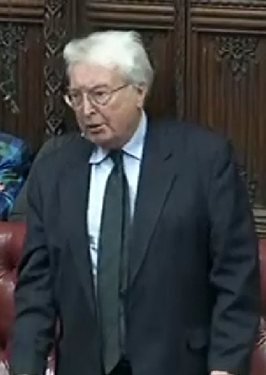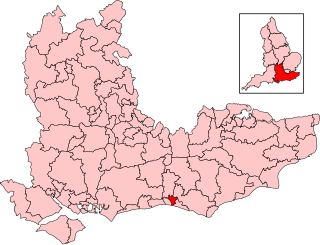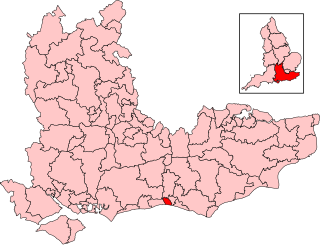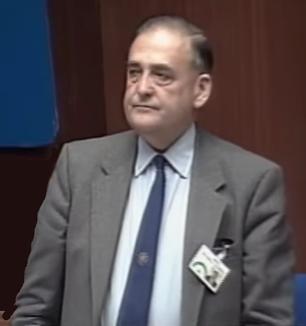Related Research Articles

The 1970 United Kingdom general election was held on Thursday 18 June 1970. It resulted in a surprise victory for the Conservative Party under leader Edward Heath, which defeated the governing Labour Party under Prime Minister Harold Wilson. The Liberal Party, under its new leader Jeremy Thorpe, lost half its seats. The Conservatives, including the Ulster Unionist Party (UUP), secured a majority of 30 seats. This general election was the first in which people could vote from the age of 18, after passage of the Representation of the People Act the previous year, and the first UK election in which party affiliations of candidates were put on the ballots.

Peter Kingsley Archer, Baron Archer of Sandwell,, was a British lawyer and Labour Party politician. He was a Member of Parliament from 1966 until 1992, when he became a life peer. Between 1974 and 1979 he was Solicitor General for England and Wales.

Ian Reginald Edward Gow was a British politician and solicitor. As a member of the Conservative Party, he served as Member of Parliament (MP) for Eastbourne from 1974, until he was assassinated in 1990 by a car bomb planted by the Provisional Irish Republican Army (IRA) outside his home in East Sussex.
Frederick Walter Scott Craig was a Scottish psephologist and compiler of the standard reference books covering United Kingdom Parliamentary election results. He originally worked in public relations, compiling election results in his spare time which were published by the Scottish Unionist Party. In the late 1960s he launched his own business as a publisher of reference books, and also compiled various other statistics concerning British politics.

Peter Wynford Innes Rees, Baron Rees, was a British Conservative politician and barrister. He was Member of Parliament (MP) for Dover and Deal from 1974 to 1983 and MP for Dover from 1970 to 1974 and 1983 to 1987. He was Chief Secretary to the Treasury from 1983 until 1985. He was created a life peer as Baron Rees, of Goytre, in 1987.

Newbury is a constituency of the Parliament of the United Kingdom, located in the English county of Berkshire. It was created by the Redistribution of Seats Act 1885 and has been in continual existence since then. It has been represented by Lee Dillon of the Liberal Democrats since 2024.

Brighton Pavilion is a constituency represented in the House of Commons of the UK Parliament since 2024 by Siân Berry of the Green Party.

Brighton Kemptown and Peacehaven is a constituency represented in the House of Commons of the UK Parliament since the 2024 general election by Chris Ward of the Labour Party.

Windsor (/ˈwɪnzə/) is a constituency of the House of Commons in the UK Parliament represented since 2024 by Jack Rankin of the Conservative Party. It was re-created for the 1997 general election after it was abolished following the 1970 general election and replaced by the Windsor and Maidenhead constituency.

Hove and Portslade is a borough constituency in East Sussex represented in the House of Commons of the UK Parliament since 2015 by Peter Kyle of the Labour Party, who currently serves as Secretary of State for Science, Innovation and Technology in the government of Keir Starmer.
Reading was a parliamentary borough, and later a borough constituency in England, represented in the House of Commons of the Parliament of England until 1707, the Parliament of Great Britain from 1707 to 1800, and of the Parliament of the United Kingdom from 1801 to 1950 and 1955 to 1974. Until 1885, the constituency comprised the town of Reading in the county of Berkshire; after 1885, it was centred on the town but the exact boundaries differed.

Geoffrey Finsberg, Baron Finsberg, was a British Conservative politician. He was the Member of Parliament (MP) for Hampstead from 1970 to 1983, and for its successor constituency, Hampstead & Highgate, from 1983 to 1992.
Kenneth Roy Thomason, was a British Conservative Party politician. He was a local government leader and served one term as a Member of Parliament (MP).
Arthur Charles Latham was a British Labour Party politician, who was the MP for Paddington North from 1969 to 1974, and its successor seat, Paddington, from that year until 1979.

The 1973 Berwick-upon-Tweed by-election was a parliamentary by-election held on 8 November 1973 for the House of Commons constituency of Berwick-upon-Tweed. It was one of four UK by-elections held on the same day.

William McKeag MSM was a British politician, soldier and solicitor. His political affiliations changed over the years from Liberal to National Liberal, back to Liberal and finally to Conservative, but he never wavered from a fierce loyalty to his native North East of England and was described in his obituary in The Times as one of the North East's leading figures, a keen publicist for the area and for Tyneside in particular.

Matthew James Offord is a British Conservative Party politician who served as the Member of Parliament (MP) for Hendon in North London from 2010 to 2024. He was previously a member of the Association of European Parliamentarians with Africa Governing Council.

Gareth Alan Johnson is a British politician and former lawyer who served as the Member of Parliament (MP) for Dartford from 2010 to 2024. A member of the Conservative party, he served as Parliamentary Under-Secretary of State for Courts from September to October 2022 in the Truss ministry. Johnson previously served as a Lord Commissioner of the Treasury from February to September 2022 and Assistant Government Whip from 2018 to 2019 and 2021 to 2022.
The Walthamstow East by-election of 27 March 1969 was held following the death of Labour Member of Parliament (MP) William Robinson. The seat was won by the opposition Conservative Party.
The 1969 Swindon by-election of 30 October 1969 was held after Labour Member of Parliament (MP) Francis Noel-Baker resigned from the House of Commons. The seat was won by the Conservative Party in a defeat for Harold Wilson's government.
References
- ↑ "Mr Christopher Ward (Hansard)". api.parliament.uk. Retrieved 11 May 2021.
- 1 2 3 "Five by-elections on October 30", The Times, 14 October 1969, p. 1.
- 1 2 "Who's Who", A & C Black.
- ↑ "Law Society Roll of Solicitors". Archived from the original on 27 September 2011. Retrieved 31 December 2007.
- 1 2 "The Times Diary", The Times, 6 May 1972, p. 14.
- ↑ Geoffrey Charles, "New speed limits on the way", The Times, 26 February 1969, p. 4.
- ↑ Denis Taylor, "Liberals hopeful at Swindon", The Times, 23 October 1969, p. 10.
- ↑ Tim Jones, "Winner is shouted down", The Times, 31 October 1969, p. 1.
- ↑ "Mr Hogg predicts hanging will be election issue: censure rejected by 62 votes", The Times, 16 December 1969, p. 4.
- ↑ "Housing achievement still best – Minister", The Times, 28 January 1970, p. 4.
- ↑ David Butler and Michael Pinto-Duschinsky, "The British General Election of 1970" (Macmillan, 1970), p. 321.
- ↑ "The Times Guide to the House of Commons, 1970", p. 213.
- ↑ "The Times Diary", The Times, 6 February 1971, p. 12.
- ↑ "The Times Diary", The Times, 22 January 1972, p. 12.
- ↑ "The Times Diary", The Times, 4 February 1972, p. 12.
- ↑ "The Times Diary", The Times, 13 June 1972, p. 14.
- ↑ "Two former MPs on Tory short list for Hove", The Times, 1 October 1973, p. 2.
- 1 2 "The Times Guide to the House of Commons, 1979", p. 109.
- ↑ "Lord Carrington rejects Government's devolution plan for Scotland and Wales", The Times, 8 October 1976, p. 6.
- ↑ David Butler and Denis Kavanagh, "The British General Election of 1979" (Macmillan, 1979), p. 421.